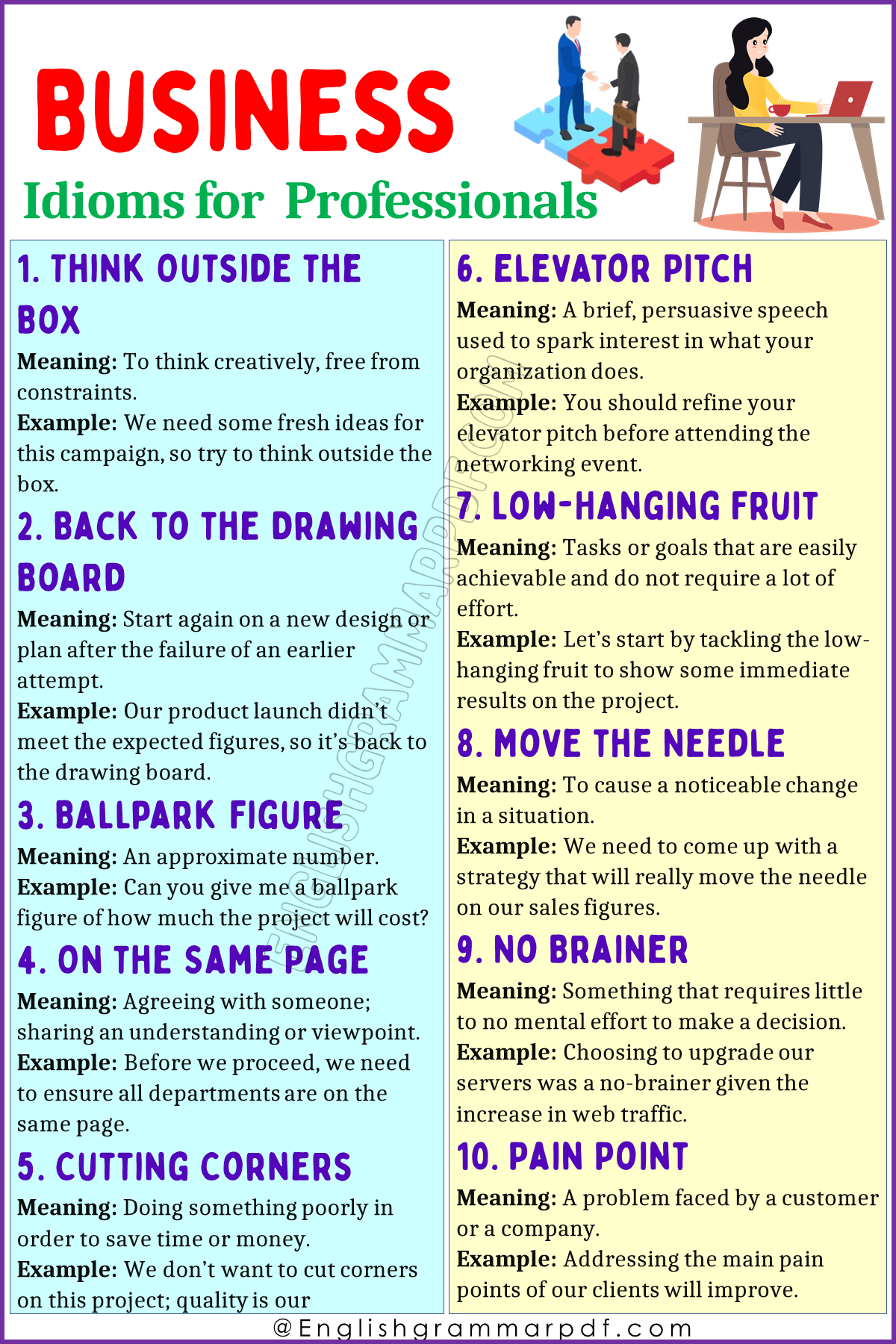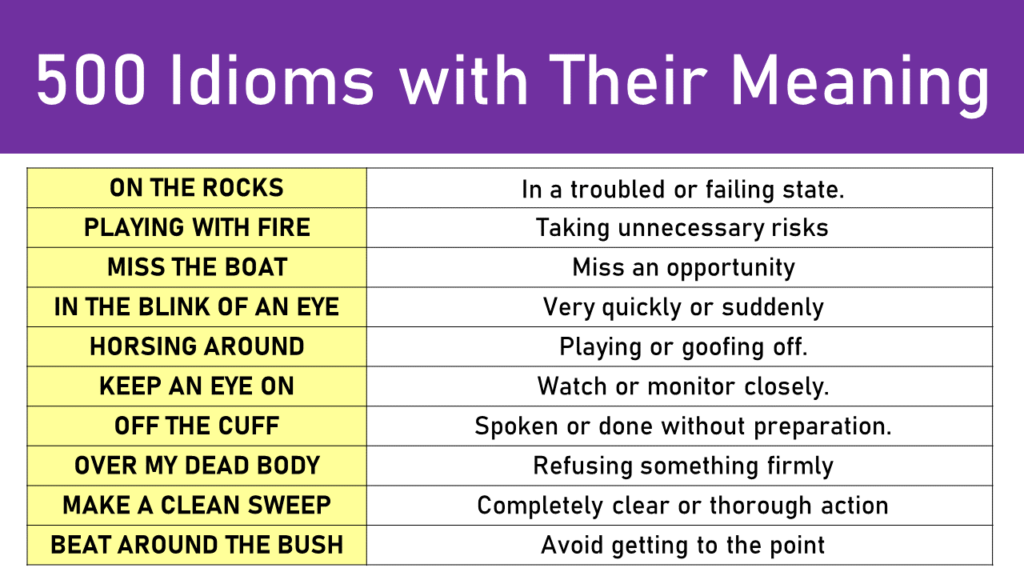In the fast-paced world of business, communication is key, and sometimes, the language used can seem almost cryptic to the uninitiated. Business idioms—those quirky combinations of words with meanings not deducible from the individual words—are often tossed around in meetings, emails, and casual conversations. Understanding these idioms can not only help you navigate everyday business discussions but also enrich your business vocabulary. Here, we delve into 20 common business idioms, explain their meanings, and illustrate how they are used in real-world scenarios.
Business Idioms for Everyday Use
1. Think Outside the Box
Meaning: To think creatively, free from constraints.
Example: We need some fresh ideas for this campaign, so try to think outside the box.
2. Back to the Drawing Board
Meaning: Start again on a new design or plan after the failure of an earlier attempt.
Example: Our product launch didn’t meet the expected figures, so it’s back to the drawing board.
3. Ballpark Figure
Meaning: An approximate number.
Example: Can you give me a ballpark figure of how much the project will cost?
4. On the Same Page
Meaning: Agreeing with someone; sharing an understanding or viewpoint.
Example: Before we proceed, we need to ensure all departments are on the same page.
5. Cutting Corners
Meaning: Doing something poorly in order to save time or money.
Example: We don’t want to cut corners on this project; quality is our top priority.
6. Elevator Pitch
Meaning: A brief, persuasive speech used to spark interest in what your organization does.
Example: You should refine your elevator pitch before attending the networking event.
7. Low-Hanging Fruit
Meaning: Tasks or goals that are easily achievable and do not require a lot of effort.
Example: Let’s start by tackling the low-hanging fruit to show some immediate results on the project.
8. Move the Needle
Meaning: To cause a noticeable change in a situation.
Example: We need to come up with a strategy that will really move the needle on our sales figures.
9. No Brainer
Meaning: Something that requires little to no mental effort to make a decision.
Example: Choosing to upgrade our servers was a no-brainer given the increase in web traffic.
10. Pain Point
Meaning: A problem faced by a customer or a company.
Example: Addressing the main pain points of our clients will improve customer satisfaction.
11. Par for the Course
Meaning: Typical or expected in a certain situation.
Example: A few bugs in the new software are par for the course and will be fixed in the next update.
12. Push the Envelope
Meaning: To go beyond the limits of what is normally done.
Example: We need to push the envelope if we want to outdo our competition.
13. Win-Win Situation
Meaning: A situation where both parties benefit.
Example: This partnership is a win-win situation; it boosts our product reach, and they get better content.
14. Game Plan
Meaning: A strategy or plan for achieving success.
Example: We’ll discuss our game plan for the upcoming product launch in today’s meeting.
15. Get Down to Business
Meaning: To start talking about the serious topics.
Example: Let’s get down to business and discuss the quarterly budget review.
16. Go the Extra Mile
Meaning: To do more than what is expected.
Example: She always goes the extra mile for her clients, which is why she’s a top performer.
17. Keep Your Eye on the Ball
Meaning: To stay focused on the task at hand.
Example: We can’t afford any mistakes, so let’s keep our eye on the ball.
18. Lay the Groundwork
Meaning: To establish a foundation or basis for something.
Example: We need to lay the groundwork now if we want to expand internationally next year.
19. Raise the Bar
Meaning: To set a higher standard.
Example: This project will raise the bar for future initiatives in our department.
20. Touch Base
Meaning: To make contact with someone.
Example: I’ll touch base with the marketing team to see how they’re progressing.



